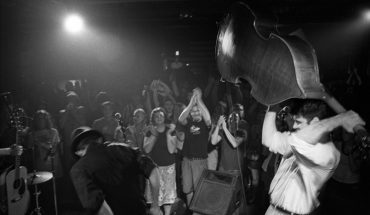by Larry Stogner
While shooting a story at RDU recently, I recalled the day I returned home from Vietnam in late 1968. There were no jetways then. There were stairs. A 50-yard walk led to the only doorway into Raleigh-Durham Airport.
I’d been gone a year, and my family was there waiting for me. I was pretty nasty from the arduous 21-hour hop-scotch from Bien Hoa Air Base near Saigon. And my joy of being home was overshadowed by fear – fear that I would fall back on old war zone habits and cut loose with a yard-long string of obscenities, horrifying my poor mother. Consequently, I didn’t have much to say.
It’s been 45 years now. Yet I think about that war every day. I think about my friend Jim DesRochers – killed in the first few minutes of the infamous Tet Offensive, Jan. 31, 1968. He was a kind, quiet boy who had been on my plane when we arrived in Vietnam months earlier. He ran to the right when the Soviet-made rockets began to land around us, sending shards of metal in all directions. I crawled to the left. A rocket hit his bunker, cutting Jim in two. A small piece of shrapnel in the knee is all I got. Pure dumb luck. Still, I have the memories. Memories of a war everyone just wants to forget.
A big old country boy from the South Carolina Piedmont, Herhall Tallent couldn’t have cared less what that bloody little conflict was all about. We talked daily about his daughter, his pride and joy, born while he was in the jungle. Hershall died in my arms just 10 days before he was scheduled to get on that freedom bird for home and meet his baby girl. Each time my job takes me to Washington, I make a point of visiting the Vietnam Memorial and touching their names – Jim’s and Hershall’s – etched into that memorial’s sacred piece of black granite.
For 12 years I was a guest lecturer at Millbrook High School in a class called “Lessons of Vietnam.” The curriculum was so popular there was a waiting list to enroll. Each semester I would “link” with one student who would pepper me with questions via email. Questions about war, communism, the anti-war movement, about the morality of a war that divided a nation.
And at some point I would speak to two straight classes of kids who at the start of the school year were only faintly aware of what the skirmish was all about. They wanted to know how it began, why it escalated, what led to the slow U.S. troop withdrawal, the Paris Peace Accords, and lastly ….the panicky, humiliating retreat of the remaining American troops when North Vietnamese soldiers closed in on Saigon, bringing an inglorious end to the war in Vietnam. The lectures were cathartic for me. More than a few times I found myself choking up over things I hadn’t thought of in many years. We didn’t lose that war. Our leaders chose not to win it. The price would be too great.
I’ve talked with dozens of fellow Vietnam vets about the spectacle of those final days in 1975. There it was on television for everyone to see – Americans catching the last choppers out of Saigon as angry Vietnamese stormed the U.S. embassy.
In 1995 I went back to Vietnam to shoot a documentary. It was the 20th anniversary of the end of the war. It was surreal. Children played in the park in Saigon. No one was shooting. I visited deformed children whose parents had been showered with Agent Orange, a poison chemical sprayed from U.S. planes so many years ago. And I spent time at a camp for people the Vietnamese call “children of the dust.” They are outcasts, children and grandchildren of Vietnamese women impregnated by American troops. For them the war never ends.
So what was it all about? What did we accomplish? The Cold War “domino theory” about the spread of Communism didn’t happen. It seems all we managed to do was to buy South Vietnam 10 years. It ended pretty much the way it would have … had no American set foot on Vietnamese soil.
People like me trickled in to Vietnam. And 365 days later we trickled out. Most of us were glad to shed those uniforms and rejoin society when we hit the States. Some had a hard time doing it – and still do. Agent Orange, PTSD, drugs and booze are partly to blame. But we’re all brothers – survivors of a conflict America turned its back on.
My personal homecoming is still going on. I’ve made a point of staying close to the state in which I was born and raised. Several job offers years ago would have taken me to places like New York, Dallas or Chicago. I turned them all down. After a while, agents quit calling. North Carolina, its culture, its people, its very rhythm … are part of my DNA.
A year ago there was a huge Welcome Home celebration for North Carolina’s Vietnam veterans. For those of us who’d fought an unpopular war and hadn’t returned to parades and celebration, it was a special day.
Fifty thousand of us showed up at Charlotte Motor Speedway. There was music, a smaller portable version of the Vietnam Wall with all 58,000 names, and lots of hugging. Tears flowed freely and unashamedly. Young warriors – now old men – comparing stories and saying to each other finally – “Welcome Home.”
It was what we’d been denied so many years ago. A pat on the back…and a thank you from a grateful nation.
I think my friends Hershall and Jim would have enjoyed it. Larry Stogner is an ABC11 news anchor




